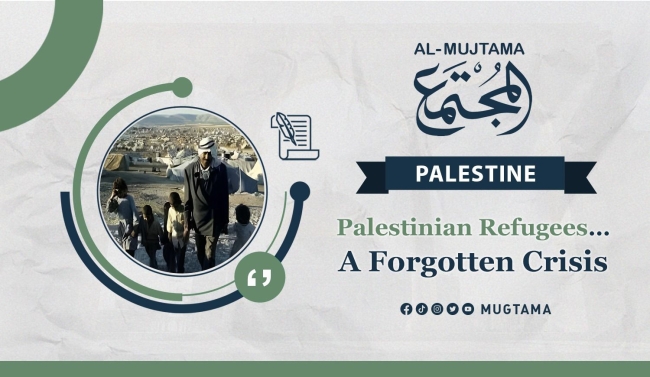The Israeli occupation of Palestinian territories has been an ongoing and contentious issue, evoking strong emotions and opinions from all sides. Throughout history, this unfortunate reality has raised concerns regarding human rights violations, political instability, and the long-standing conflict between Israelis and Palestinians. By examining the Israeli occupation we can gain a deeper understanding of this complex issue.
Historical Context and Occupied Territories:
The historical context of the Palestinian-occupied territories is complex and multifaceted, encompassing a range of political, social, and economic factors. The roots of the conflict can be traced back to the establishment of the State of Israel in 1948 and the subsequent displacement of Palestinians from their ancestral lands, known as the Nakba.
The occupation itself began in 1967 after Israel captured the West Bank, East Jerusalem, and Gaza Strip during the Six-Day War. Since then, Israel has maintained control over these areas through various military policies such as settlements, checkpoints, and restrictions on movement. This has resulted in widespread violations of human rights for Palestinians including land confiscation, home demolitions, arbitrary arrests, and limited access to basic services.
The ongoing occupation has had a significant impact on Palestinian society and continues to be a major barrier to peace negotiations between Israel and Palestine. It is crucial to understand this historical context when analyzing the current situation in order to advocate for a just resolution for all parties involved.
The human rights violations suffered by Palestinians have been well-documented and continue to be a matter of grave concern. Palestinian individuals face various forms of discrimination, oppression, and violence on a daily basis, particularly in the occupied territories of the West Bank and Gaza Strip. They endure restrictions on freedom of movement as a result of numerous Israeli military checkpoints and barriers, collectively punishing an entire population.
The construction of illegal settlements by Israel in these areas violates international law and leads to forced displacement, confiscation of property, and loss of livelihoods for Palestinians.
Moreover, the ongoing blockade imposed on Gaza has resulted in dire socio-economic conditions, including limited access to clean water, proper healthcare facilities, and basic infrastructure. These systemic violations have been condemned by numerous reputable human rights organizations like Amnesty International (source), Human Rights Watch (source), and United Nations agencies such as UNHCR (source), signaling the urgent need for international attention and action to address this long-standing crisis.
Political Implications:
The Israeli occupation has substantial political implications that make it a highly complex matter. Various political motivations and interests, including national security concerns, religious and historical claims, and Israeli settlements, fuel the continuation of the occupation. These complex political dynamics pose significant challenges when seeking to rectify the situation and establish a viable path towards peace.
Economic Ramifications:
Another dimension to understanding the Israeli occupation is considering its economic ramifications. The occupation has led to significant disparities in economic development between Israeli settlements and Palestinian territories. Palestinians suffer from restricted access to resources, limited economic opportunities, and stifled development, exacerbating their overall socio-economic conditions.
Impact on Palestinian Society:
Examining the Israeli occupation necessitates understanding its profound impact on Palestinian society. The occupation has bred a culture of resistance, contributing to the rise of grassroots movements and political factions. Additionally, the occupation's psychological effects on Palestinians, such as trauma and a sense of injustice, shape individuals' lives and the collective Palestinian narrative.
Regional Security Concerns:
The Israeli occupation's ramifications extend beyond individual territories and have serious regional security implications. It fuels anti-Israeli sentiment and contributes to radicalization, strengthening extremist groups that aim to challenge Israel's presence. The occupation's continuation hampers the prospects for regional stability, hindering efforts to build trust and cooperation among neighboring states.
International Response and Diplomatic Efforts:
Addressing the Israeli occupation requires acknowledging the international response and diplomatic efforts aimed at resolving the conflict. Multiple peace initiatives have been proposed, such as the Oslo Accords and the peace process, but have encountered obstacles in implementation. International actors, including the United Nations, the European Union, and the United States, play significant roles in mediating the conflict, yet a genuine breakthrough remains elusive.
The Israeli occupation is undeniably a grim reality, marked by a complex web of historical, political, and humanitarian elements. By analyzing the occupation's historical context, human rights violations, political implications, economic ramifications, societal impact, regional security concerns, international response, and diplomatic efforts, we can appreciate the gravity of the situation and strive for a peaceful resolution that respects the rights and aspirations of all parties involved.
Sources:
- Khalidi, Rashid I. "The Iron Cage
- Morris B., Benny "Righteous Victims
- Amnesty International
- Human Rights Watch
- UNHCR


